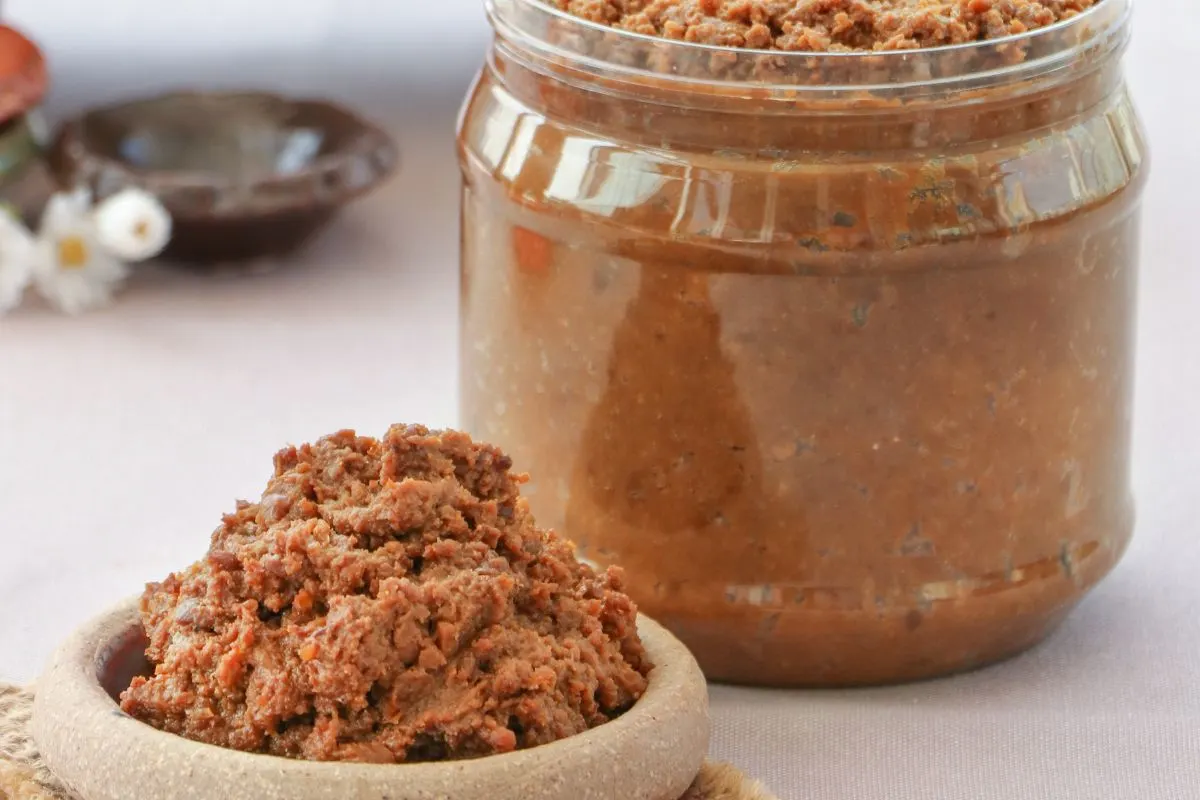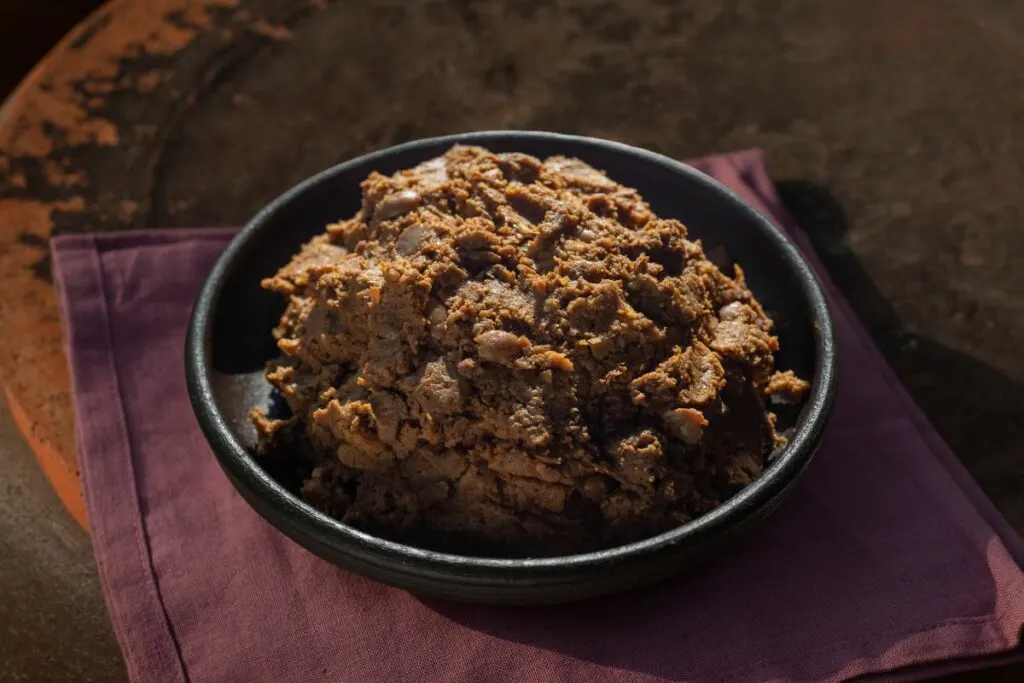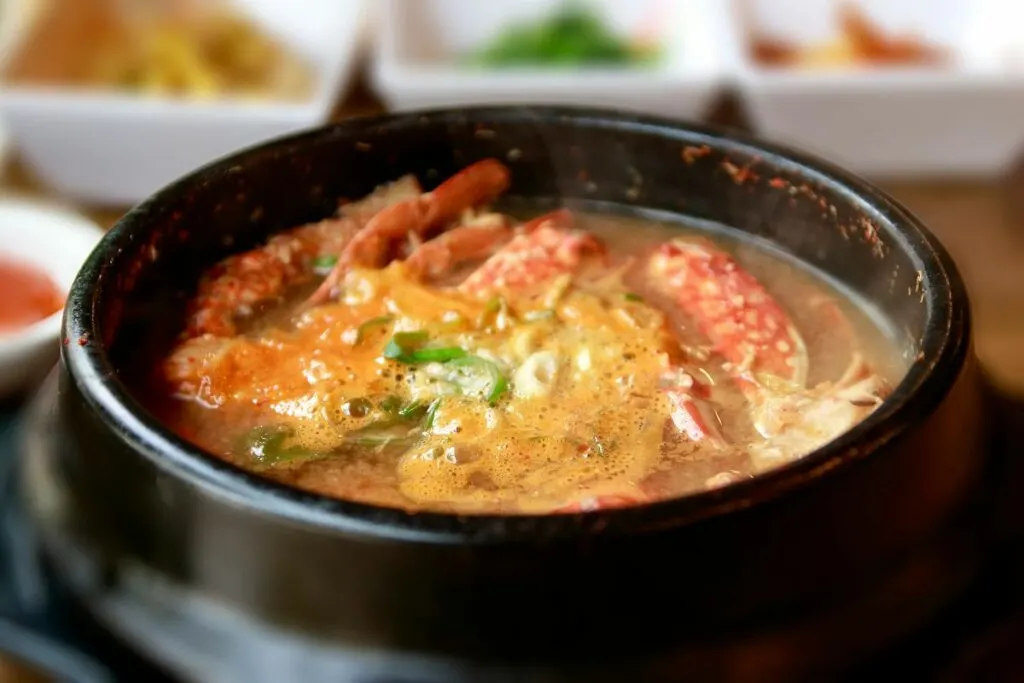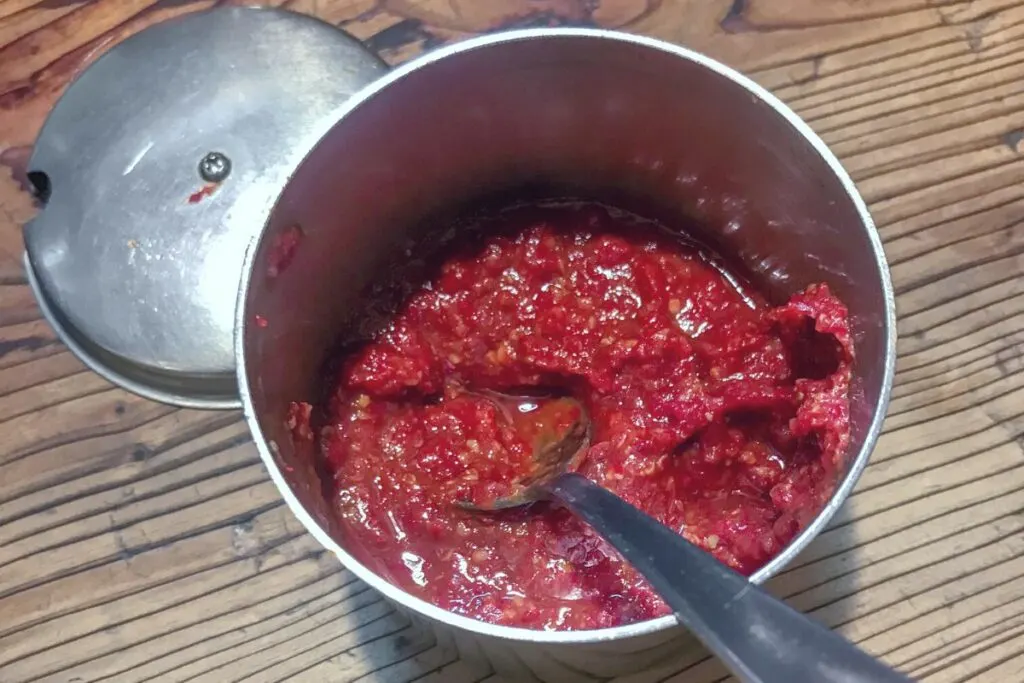Caught up in a new Kdrama and craving some Korean food? A hearty stew, perhaps? The condiment you need right now is doenjang. It’s one of the best pastes for stews, noodles, and some delicious Asian sauces. But what if you don’t have this in your pantry? Well, I’ve got just the doenjang substitutes you need. You can substitute doenjang with miso paste, gochujang, kangjang, Doubanjiang, and Tianmian sauce.
I’ll dive into why these will be the perfect doenjang alternatives for you and some recipes you can make. Find your best pick here!

Jump To
🤷 What is Doenjang?
Doenjang is a traditional Korean fermented soybean paste that holds a prominent place in Korean cuisine. It’s a thick, rich, and savory condiment with a deep umami flavor, often compared to miso but distinct in taste. Doenjang is widely used in Korean dishes to add depth and complexity, serving as a base for soups, stews, and sauces, and it plays a crucial role in enhancing the overall flavor profile of many traditional Korean recipes.
🫙 How to Store Doenjang
Store Doenjang in an airtight container in the refrigerator to maintain its freshness and prevent moisture absorption. The color varies between each because various manufacturers employ different ingredients. If you’ve stored doenjang in your fridge for a long time and the top has turned black (but not moldy), it could just be oxidized, meaning it’s been exposed to oxygen for an extended period. If it bears a resemblance to the doenjang you had initially, simply stir it well and proceed with your recipe.
📌 How to Make Doenjang at Home
To make Doenjang at home, begin by soaking soybeans overnight and then boiling them until they’re soft. Mash the softened soybeans into a paste and mix them with a fermenting agent, such as roasted and crushed barley or rice powder, along with salt. Transfer this mixture into an onggi. If you don’t have an onggi pot, you can use a clean, airtight container to ferment your Doenjang mixture. Let it ferment for several months to years, stirring and aerating periodically.

🧑🍳 How to Use Doenjang
Doenjang Jjigae (Soybean Paste Stew): The most iconic use of doenjang is in making Doenjang Jjigae. Create a hearty stew by combining doenjang with water or broth, adding tofu, vegetables, and sometimes meat or seafood. Simmer until the flavors meld, resulting in a rich and satisfying dish.
Marinades: Utilize doenjang as a key ingredient in recipes for beef, sauces for pork chops, or spicy chicken sauce recipes. Combine it with garlic, dark soy sauce, sesame oil, and a touch of sugar. You can use some dark soy sauce substitutes if you don’t have any around.
Dipping Sauce: Mix doenjang with light soy sauce, sesame oil, and perhaps a bit of sugar to create a delightful dipping sauce. If you don’t have light soy around, you can use some light soy sauce alternatives to get the job done.
Bibimbap Sauce: Enhance the sauce for bibimbap by incorporating doenjang along with gochujang (Korean red chili paste), sesame oil, and a hint of sugar. This flavorful combination adds complexity to the classic Korean mixed rice dish.
Stir-Fries and Noodle Dishes: Elevate the umami in stir-fries or noodle dishes by adding a spoonful of doenjang. It complements a variety of ingredients, including vegetables, tofu, and noodles, infusing the dish with a distinctive Korean flavor.
Vegetable Side Dishes: Use doenjang as a seasoning for sautéed or blanched vegetables. Toss vegetables in a mixture of doenjang, garlic, and sesame oil for a quick and tasty side dish that highlights the paste’s savory notes.

💡 5 Best Doenjang Substitutes
Miso Paste
Both miso and doenjang are made from fermented soybeans + salt. This Japanese fermented soybean paste incorporates a koji starter to rice along with the soybeans, producing an overall much sweeter taste. When using in your cooking as a replacement for doenjang, start with a half portion of miso for the amount of doenjang called for then adjust the flavor accordingly.
Gochujang
This Gochujang substitute for doenjang is a popular Korean condiment. This fermented spicy red chili pepper paste can be used as a spicier version of doenjang, as they have a similar base. If you don’t mind the heat, then this is a great direct replacement for the condiment. Use a 1:1 ratio for marinades, dipping sauces, and stews.
Kangjang
Kangjang or Gangjang (Korean soy sauce) and doenjang are basically the same things. They’re literally made from the same “brick;” The only difference is in their processing and water content. Use this doenjang substitute when making soups and stews, where a bit of extra moisture makes no difference. If you’re looking to add flavors from your favorite brand, check the ingredients list and just add the missing components to the dish you’re cooking.

Doubanjiang
Much like doenjang, doubanjiang is made from fermented soybeans that have a slightly salty, sour, sweet, and bitter umami taste. The two condiments are very similar, only doubanjiang is often fermented for longer and is a bit less common. This processing difference results in a stronger-tasting flavor from this Chinese fermented chili bean paste. Look for a mild version, as it will be closer to doenjang in flavor.
Tianmian sauce
Tian Mian sauce is a thick, brown, Chinese sweet bean paste made from wheat flour, sugar, and salt. Both a seasoning and condiment, this works as a great substitute for doenjang. Use it in equal proportions as a replacement for doenjang for stir-fries, marinades, noodle dishes, soups, stews, and even as a dipping sauce.
🧐 FAQs
Doenjang is meticulously crafted through fermentation, blending soybeans with grains and salt to create a complex flavor profile with a thick, chunky texture. This paste was primarily fermented in large earthenware pots called onggi and serves as a foundational ingredient in various Korean dishes like Doenjang Jjigae.
Doenjang Jjigae is a classic Korean stew made with Doenjang, the traditional fermented soybean paste. This hearty and comforting dish typically includes a combination of vegetables, tofu, and sometimes meat or seafood.
Doenjang is also readily accessible in major supermarkets (head towards the International or Asian section) and specialty Asian groceries.
Doenjang is a fermented soybean paste that’s salty and earthy in flavor. It is often used as a base for soups and stews, like doenjang jjigae. Gochujang is a fermented chili paste that is sweet, spicy, and savory.
